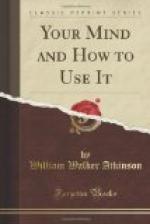CHAPTER XIV
EXAMINATIONS
One of the most vexatious periods of student life is examination time. This is almost universally a time of great distress, giving rise in extreme cases to conditions of nervous collapse. The reason for this is not far to seek, for upon the results of examinations frequently depend momentous consequences, such as valuable appointments, diplomas, degrees and other important events in the life of a student. In view of the importance of examinations, then, it is natural that they be regarded with considerable fear and trepidation, and it is important that we devise what rules we can for meeting their exactious demands with greatest ease and effectiveness.
Examinations serve several purposes, the foremost of which is to inform the examiner regarding the amount of knowledge possessed by the student. In discovering this, two methods may be employed; first, to test whether or not the student knows certain things, plainly a reproductive exercise; second, to see how well the student can apply his knowledge. But this is not the only function of an examination. It also shows the student how much he knows or does not know. Again the examination often serves as an incentive to harder work on the part of the student, for if one knows there will be an examination in a subject, one usually studies with greater zeal than when an examination is not expected. Lastly, an examination may help the student to link up facts in new ways, and to see them in new relationships. In this aspect, you readily see that examinations constitute a valuable device in learning.
But students are not very patient in philosophizing about the purpose of examinations, declaring that if examinations are a necessary part of the educational process, they wish some advice that will enable them to pass examinations easily and with credit to themselves. So we shall turn our attention to the practical problems of passing examinations.
Our first duty in giving advice is to call attention to the necessity for faithful work throughout the course of study. Some students seem to think that they can slight their work throughout a course, and by vigorous cramming at the end make up for slighted work and pass the examination. This is an extremely dangerous attitude to take. It might work with certain kinds of subject-matter, a certain type of student-mind and a certain kind of examiner, but as a general practice it is a most treacherous method of passing a course. The greatest objection from a psychological standpoint is that we have reason to believe that learning thus concentrated is not so permanently effective as that extended over a long period of time. For instance, a German course extending over a year has much to commend it over a course with the same number of recitation-hours crowded into two months. We already discussed the reasons for this in Chapter VI, when we showed the beneficial results coming from the distribution of impressions over a period of time.




